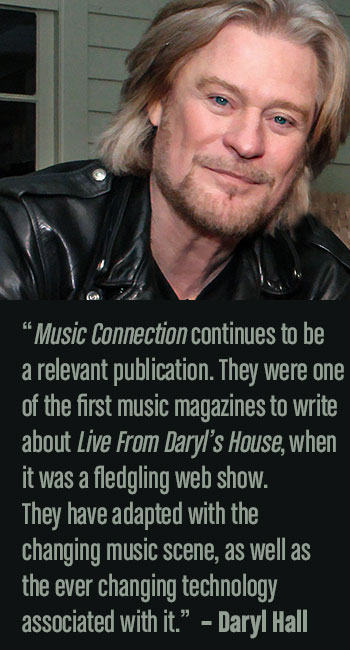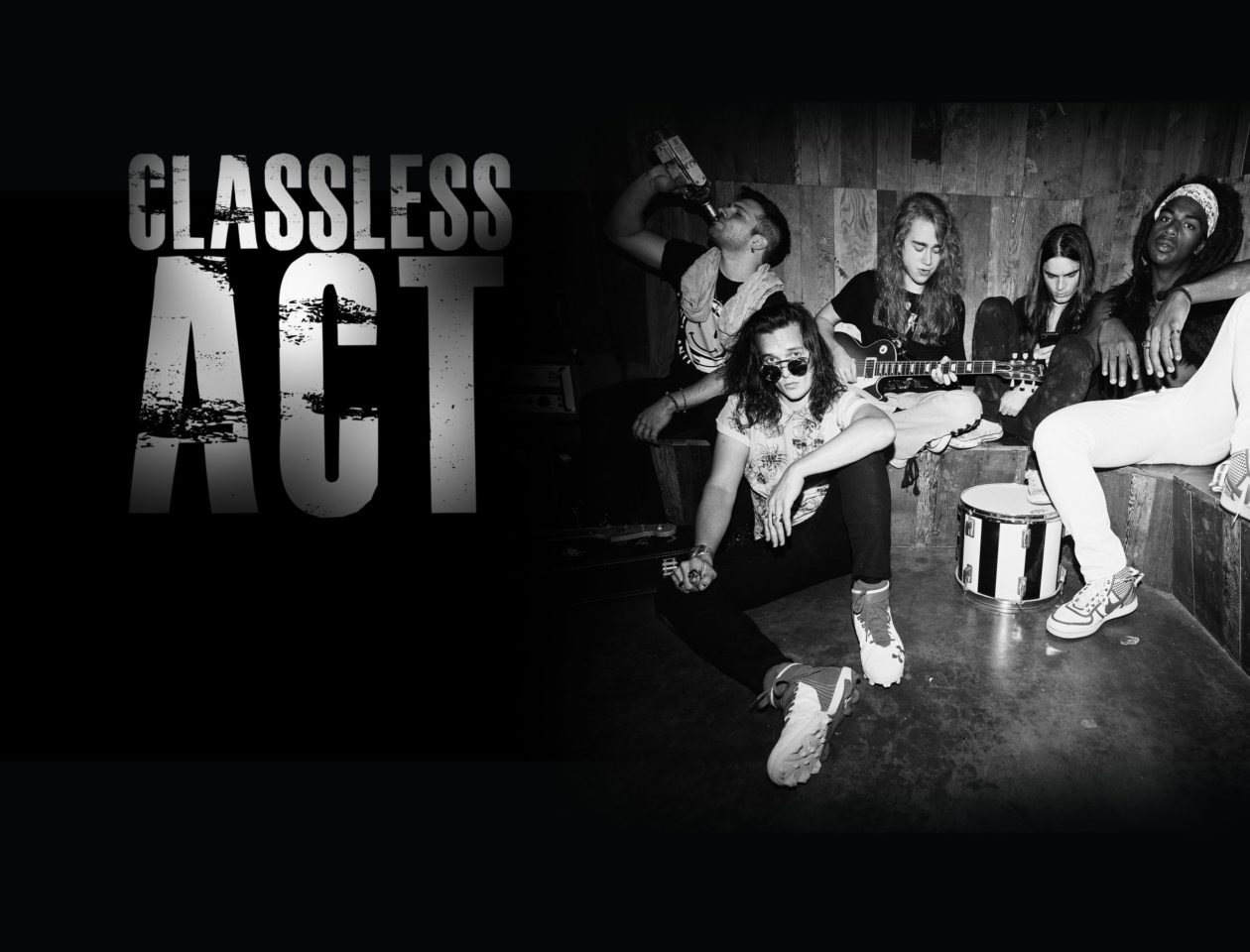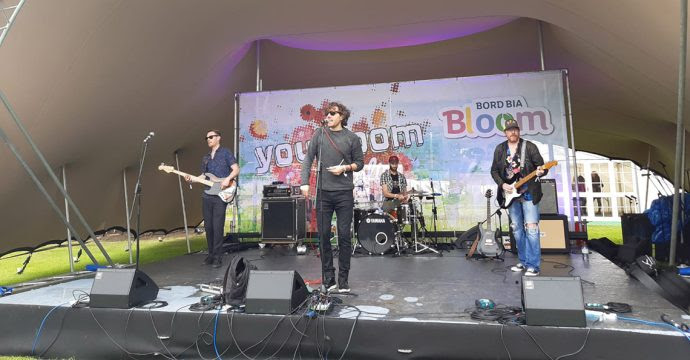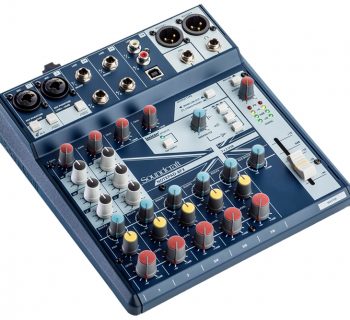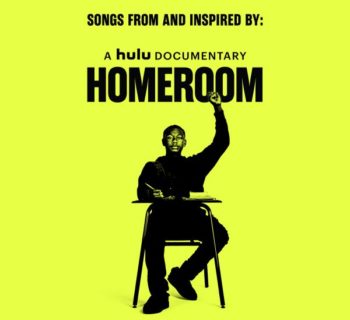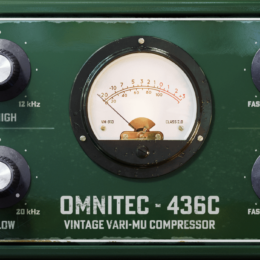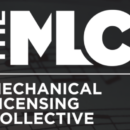How to Grab Their Attention
Attracting the attention of a record label talent scout could mean the difference between a thriving career and endless obscurity. That said, A&R remains one of the industry’s least understood positions. As we do every year at this time, Music Connection converses with a handful of players inhabiting this space to give our readers insight into how they operate—and how best to catch their eyes and ears.

Moby
Founder
always centered at night
instagram.com/alwayscenteredatnight
Of the artists you’ve signed, of which are you most proud? And what made you sure you had a diamond in the rough?
We don’t actually sign anyone. The idea is to work with a singer on a one-off track, as opposed to signing artists. The artists I work with are already signed. It would be frustrating if the condition for working with artists would be they have to exclusively sign to my label. It’s much nicer to simply do deals with their labels.
Growing up, I desperately wanted to be a great singer. Over time, I made peace with the fact that I am an average, idiosyncratic singer. But in the early ‘90s when I started making records under my own name, I wanted to have great voices on my records. That led to sampling vocals, but also working with singers. The best-case scenario is when you find someone who has a distinctive, beautiful voice and also writes remarkable lyrics. That’s my quest—finding people who have interesting, beautiful voices who can also write interesting, poetic, nontraditional lyrics.
What qualities make you an effective A&R person?
[Because I do everything for the label], I’m technically the A&R person. I’m finding artists and working with them on repertoire. In this case, it’s one song. It’s almost the way A&R existed a long time ago. This is largely what A&R did, as opposed to signing an artist to a five-album deal. In 1952, that didn’t exist.
What makes me good at this is I’ve been obsessed with music since three years old. Obsessed with voices. Obsessed with lyrics. Obsessed with the emotional impact music can have. And the other part is it’s almost like some of these earlier labels, where they were producing music in-house. Every song released on the label, I’ve co-written, produced and played all the instruments on.
The goal is not to conform the artist’s voice or production to any pop standard. The goal is to create something interesting, idiosyncratic and emotional that fits the voice of the singer.
There are many ways artists can get the attention of an A&R rep. Which are the most effective?
Basically, I approach them. If someone approaches me, it rarely works out because I’m usually looking for something specific. You want to respect people’s talent and ambition. But when someone is doing something far afield from what I’m working on, there’s no way to involve myself, even if it’s really well done. There are a lot of voices out there I can’t work with.
What should artists do to tailor themselves to be more attractive to A&R people? What should they avoid doing?
The first thing is a degree of self-awareness. The people who succeed in a major label system are one in a million. If you are that one in a million, if you’re Harry Styles, you’re going to do great. If you’re attractive, have a good voice, can dance and love pop music, you’re going to thrive. But if you’re not Harry Styles, don’t try to be. A lot of people are willing to compromise their integrity and what makes them unique to compete for that one-in-a-million spot.
Think of Billie Eilish. Her success came from being herself. She and Finneas [O’Connell] didn’t compromise to reach the market. They did something great and the market found them. If she had tried to be some sort of teen pop sensation, it wouldn’t have worked. If you’re not Ariana Grande or Harry Styles, don’t try to be. Be weird. Be interesting.
Where is A&R heading? Do you anticipate it changing in particular ways?
The label only exists for me to make music that I love with singers I love. The criteria are not streaming numbers or revenue or Grammy nominations. The only criterion is to make wonderful music. That might sound disingenuous, but it’s actually not. My friends in the world of commercial music production make compromises that are so distasteful to me that it’s easy to just not get involved in that world. I don’t want to write songs about bottle service.
Sometimes, I’ll find a singer I love and try to get them to do something unique, something idiosyncratic. There are a lot of people, especially in L.A, who have been chasing the pop dream for so long that they’ve almost forgotten how to not be pop. It’s hard for people who grew up listening to NSYNC and moved to L.A. to become pop stars to remove themselves from that. It’s heartbreaking, because there are some talented people out there who could be fascinating and unique, but instead they’re compromised in the interest of pop success.
What do you want people to understand about A&R?
One of the greatest luxuries is not having to compromise. And luckily, I don’t ever have to. I’m unwilling to compromise to accommodate a platform and a system that I have no respect for. There have been times when I did compromise and regretted it. Creating something beautiful should be the focus.
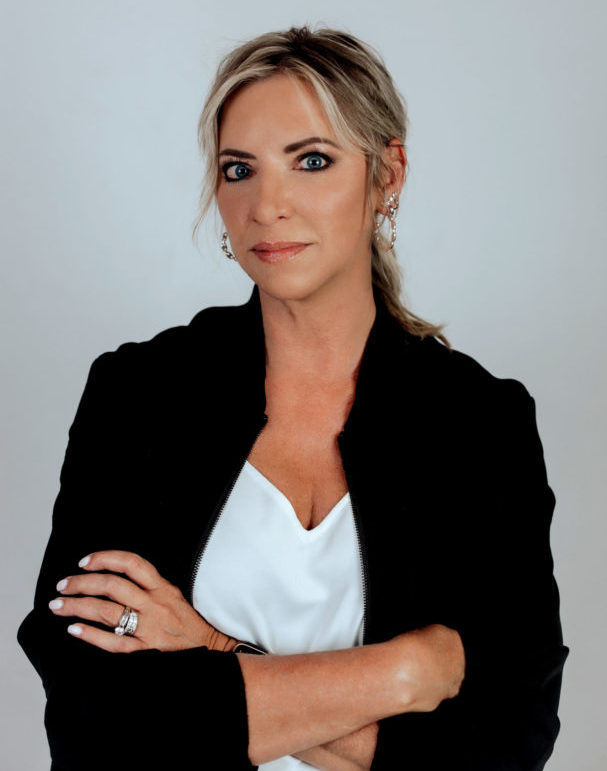
Stephanie Wright
Senior VP, A&R
Universal Nashville
universalmusic.com
Of the artists you’ve signed, which are you most proud of? And what made you sure you had a diamond in the rough?
My roster includes Sam Hunt, Kacey Musgraves and Jordan Davis. Those three I’m pretty proud of. We’ve had Sam on this roster for almost 10 years. I went to a writer’s round 10 years ago, talked to him that night and heard a couple songs. I was not in a position where I could sign artists at that point, so I had to fight for it. Previous to that, I brought in Kacey Musgraves and worked on that for a couple years. Sam Hunt seemed different than anything else. And different is always good.
What qualities make you an effective talent scout person?
You have to be a good listener. Being in tune with your artist, knowing about their lives, what they sing about, what they like, having a pulse of the town, knowing what’s working, who the new writers are and what works best for your artist… It’s keeping everybody’s spirits up and positively moving forward.
There are many ways artists can get the attention of an label rep. Which are the most effective?
When [A&R] started, you had artists coming in via managers and attorneys or artists would just show up. Now with social media, we’re all paying attention to something that spikes. You still get artists coming in from publishing companies. Sometimes it comes in from a booking agent. It’s a little bit the old way of doing things, but a lot of it comes in based off numbers.
What should artists do to tailor themselves to be more attractive to label people? What should they avoid doing?
It’s about being an original artist and not duplicating what somebody else has done. Figure out whom you’re talking to and what it is you’re trying to communicate. Develop your chops, from writing to being out on the road. Originality is still key and having great songs or, if you’re not a great writer, being able to look at outside songs.
I’m attracted to vocals and a specific way of hearing something that hasn’t been done before. That part hasn’t changed. The pace is different, for sure. You have to make decisions a little quicker, because typically, when an artist ventures on the scene and numbers start ticking up, you have everyone looking.
Where is A&R heading? Do you anticipate it changing in particular ways?
The pace affects how we do things. But the core of working on an artist’s repertoire or developing their chops as a writer, enhancing their career as a performer, we’re going to continue to help guide those things. When I started, it was just about songs and releasing music. Now, it’s all types of content. You have to look at all those pieces and what works best for them. Are they staying on brand with the artist? We’re involved in stuff that we weren’t involved in before.
What do you want people to understand about scouting new artists?
It’s not one size fits all. What we do for one artist we don’t necessarily do for another. You have to cater to the artist and their needs.
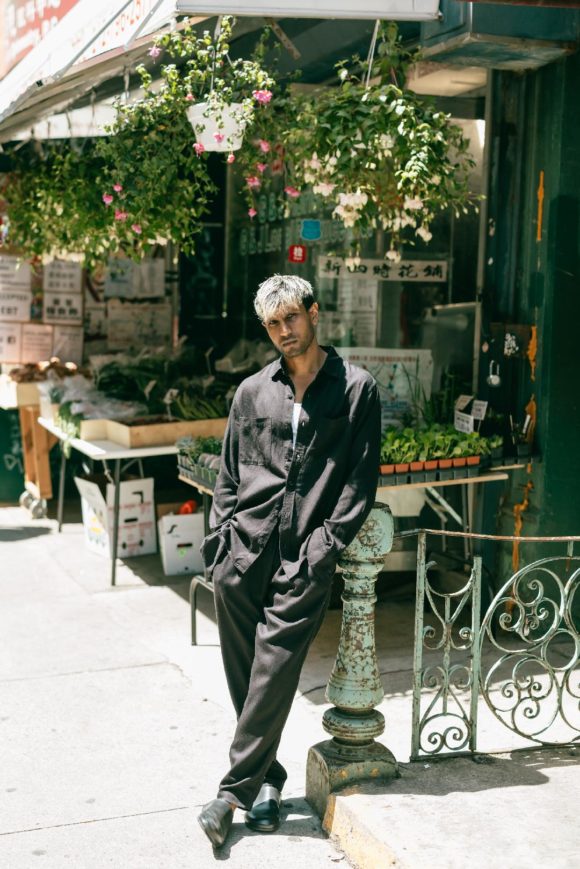
Sameer Sadhu
VP of A&R
Nettwerk Music Group
nettwerk.com
Of the artists you’ve signed, which are you most proud of? And what made you sure you had a diamond in the rough?
There isn’t quite a favorite. This sounds like a politically correct answer, but each deal is different. I have 35 acts on my roster. They span a wide range of genres and personalities. Nettwerk’s a great home for career artists, especially for those who have been through other systems and are looking for help with their vision. There are different facets of A&R, and I’m proud that we do all of them really well.
A lot comes down to personality and gut. Obviously, the music is at a high quality and the vision is there. Also, understanding what makes [artists] tick and where they see themselves. Those get us excited. The metrics is one thing, but having something unique to say, that’s really exciting. And the work ethic and how much they want it.
What qualities make you an effective A&R person?
I view artist development as human development. Sometimes, it’s about the rat race and taking things quickly. Those moments are great, when you’re going from zero to 100. But the hardest part is consistency and remaining at the top. It’s allowing the artist both the physical and mental headspace to do that. My goal is to allow the artist to be comfortable and fulfill their creative demands. That’s the most important principle. That’s something I do well and is in the DNA of [Nettwerk].
There are many ways artists can get the attention of an A&R rep. Which are the most effective?
It comes down to spending time with the A&R. Metrics are a great way of getting people’s attention. But sometimes you meet artists who have nothing to say and don’t know where they want to take stuff. That’s hard for everyone.
It’s as important to know what you want as much as it is to know what you don’t want. When you meet an artist who has a clear vision and knows where they want to go, that gets an A&R’s attention. Being able to communicate that vision, having incredible songs and being able to develop them is key. Of course, having an incredible live show and being an incredible person are just as important. To have longevity, you have to be a great person. And that’s something that will inspire the teams around you.
What should artists do to tailor themselves to be more attractive to A&R people? What should they avoid doing?
I actually don’t think they should tailor themselves. That’s what makes them special. Understanding their perspective and why that’s important, that excites me. I don’t want a carbon copy of the next artist. I grew up in Singapore and a lot of artists there were trying to be like another artist from the West. That was never exciting. There already is that artist. I want artists to understand what they bring to the world that’s unique.
I love when artists say no to things, because that means they know what they want. Sometimes the artist knows best, especially when it comes to songs. We want to find this middle ground where you’re not compromising, but also understand why this [change] makes a song better.
Where is A&R heading? Do you anticipate it changing in particular ways?
Artist development will always be at the heart of it. Certain labels have different business models when it comes to A&R. For example, we’re not the sort of label that says you have to do three sessions a day. I have artists who send me iPhone demos and others just send the final record. It’s case-by-case with what they’re comfortable with and when they feel things are ready. The artist knows when things are done.
What do you want people to understand about A&R?
A&R has this weird mystique. It’s almost been this role of secrecy where it’s like you’re a gatekeeper. I want to be transparent. Everyone works differently. Everyone’s roster is sort of aligned to how they are. At Nettwerk, everyone knows what everyone’s working on and helps each other. We’re very collaborative in allowing other A&Rs to jump on projects.
The other side is data and being strategic. We live in a world where fans are the gatekeepers of what song’s a hit. Back in the day, the A&R was sort of like, “These are the singles.” Now, you sort of allow the data to determine what’s going [to work]. It’s the most democratic process we’ve ever had. At the end of the day, that’s all we want––fans connecting with songs.
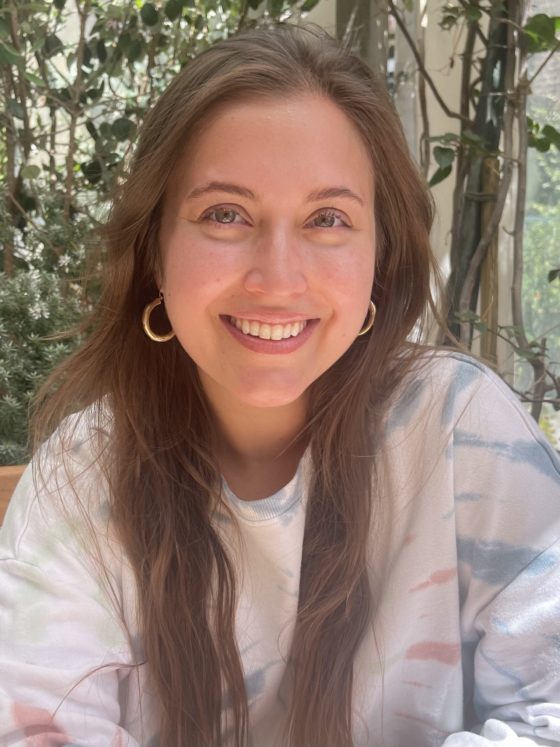
Chloe Weise Donovan
VP of A&R
RCA
rcarecords.com
Of the artists you’ve signed, which are you most proud of? And what made you sure you had a diamond in the rough?
Walker Hayes’ “Fancy Like” is a song I upstreamed from Monument [Records]. We’d been following him and talking to his team for years. And “Fancy Like” was this phenomenon. We haven’t seen a crossover country moment in the pop zeitgeist like that in some time.
Developing relationships in Nashville while still being a pop person was the reason we were able to upstream that record. I had a built-in relationship with Katie McCartney, GM of Monument. I was the first person she called to be, like, “Hey, this song is happening. Is there something for us to do together?” So, we did a couple remixes, one with Kesha to kind of take it more toward a mainstream pop audience. There’s also a version with Carin Leon, who’s a Mexican artist; there’s a lot of overlap between listeners of regional Mexican music and country music. It became this snowball effect of this hit record that we got to elevate.
I’m a lyric and melody person. Most of the artists I work with either take outside songs or co-write, so I’m involved in the songwriting community. And that was a one-listen record. It reminded me of the demo for “Timber,” the Pitbull/Kesha record, because it was so immediate. After the first listen, you already had half of it stuck in your head.
What qualities make you an effective A&R person?
I’m super-involved in finding songs and putting together songwriting sessions. The most fulfilling part of my job is finding cowriters and producers for [artists] to lock in with. I’m working on a record with Tate McRae. She said, “I want to figure out who are my go-to people that I’m going to make something next level with.” It’s being as on-the-ground as possible to [identify] who those people are.
There are many ways artists can get the attention of an A&R rep. Which are the most effective?
TikTok and social media. All the labels are looking at the same data, so we’re all paying attention to what’s clicking. But I’m lucky to work at RCA, where we’re not purely basing signing decisions on analytics. It still is that human connection. It’s really looking at the songwriting and how much the music speaks to us on a personal level. The fact that we’re able to do deals like that is a blessing.
What should artists do to tailor themselves to be more attractive to A&R people? What should they avoid doing?
Show the true fan connection. Tate McRae is an amazing example of that. She nailed TikTok and has been able to promote her records on there. Beyond that, her lyrics are so personal. That makes people tune in; they feel like they’re reading a page in their diary. Anyone can have a TikTok moment, but it’s having the music and the vision for where you want to go that takes it to the next level.
There are many people taking risks online, which is amazing. But once you get that moment, you want to make sure you have the material to back it up so it’s not just a flash in the pan. You have to be calculated about what comes next.
Where is A&R heading? Do you anticipate it changing in particular ways?
Analytics [show] what people are reacting to, but it only skims the surface. Steve Lacy had a moment this summer with “Bad Habit” and didn’t play the analytics game. He kind of did everything against the norm. As people come out of this data-signing frenzy and see true artist stories like this, real A&R is going to be just as important as it was 20 years ago. Artists will always need a team of people to help them take it to the next level.
What do you want people to understand about A&R?
The perception of A&R is that it’s glamorous. You’re getting face time with artists and doing all these things. The reality is that you’re only as good as your last signing and your last hit, so A&R people need a little grace. We put a lot of ourselves on the line to make artists’ dreams come true. And sometimes that isn’t always appreciated.
